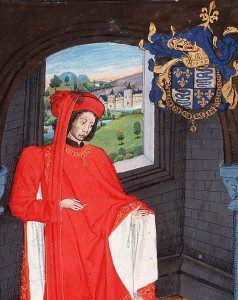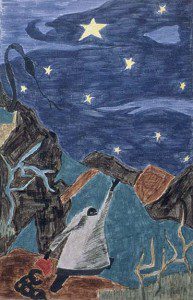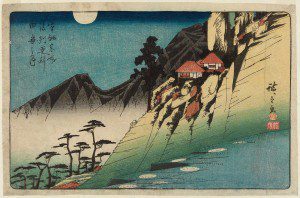 Why the day of Saint Valentine is associated with romantic love is a mystery. A couple of sainted Valentines, both martyred, are known to the early church but what little is known of them has nothing to do with romance. They are so obscure that the feast of St.Valentine was removed from the General Roman Calendar in 1969. The church that sustains it is the Grand Archdiocese of Florists, Chocolatiers and Greetings Card Makers.
Why the day of Saint Valentine is associated with romantic love is a mystery. A couple of sainted Valentines, both martyred, are known to the early church but what little is known of them has nothing to do with romance. They are so obscure that the feast of St.Valentine was removed from the General Roman Calendar in 1969. The church that sustains it is the Grand Archdiocese of Florists, Chocolatiers and Greetings Card Makers.
Chaucer is credited with making the first literary association between Valentine’s Day and romantic love in a verse he wrote (in Parliament of the Foules) in 1382, to celebrate the marriage of King Richard II to Anne of Bohemia.
For this was on seynt Volantynys day
Whan euery bryd comyth there to chese his make.
“For this was on Saint Valentine’s Day
when every bird comes there to choose his mate.”
So perhaps we can thank Chaucer for the lovebirds.
A generation later, the poet-prince Charles d’Orléans (in whose name Joan of Arc went to war) wrote the first recognized Valentine greeting. This appears in a sad and strange rondeau addressed to his wife from the Tower of London, where he was being held by the English after his capture at the Battle of Agincourt. The Duke’s poem begins:
Je suis desja d’amour tanné
Ma tres doulce Valentinée
Car pour moi fustes trop tart née,
Et moy pour vous fus trop tost né.
“I am already worn out with love
my very sweet Valentine
since for me you were born too late
and for you I was born too soon”
Whatever our current relations with partners, lovers and family, we probably all know someone who deserves a Valentine’s kiss or a hug, oArt:r even a few rhyming couplets. This is also a very good time to think about how dreams can lead us into loving relationships, or out of those that have gone cold and dead.
A chapter in my memoir The Boy Who Died and Came Back is devoted to my dream archaeology expeditions into life and times of Charles d’Orleans and Joan of Arc (who went to war in his name). These began when I rose from sleep with just one mysterious word of medieval French that proved to be a key to trans-temporal discoveries and adventures.
Art: medieval likeness of Charles d’Orleans

